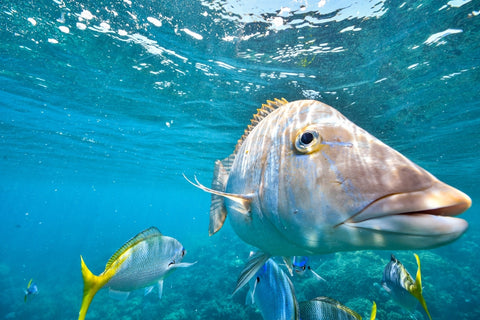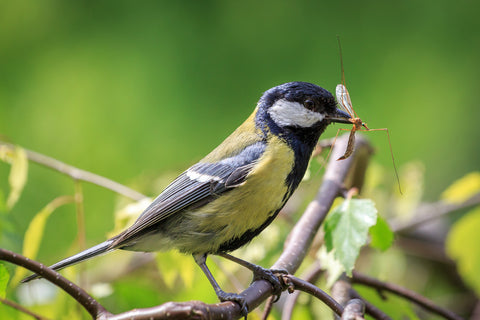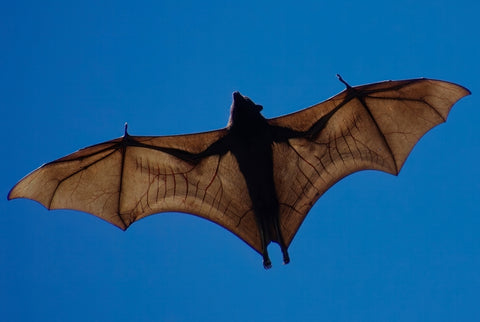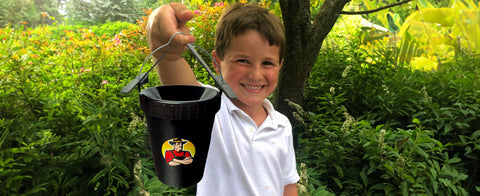While you may feel like something of a mosquito predator when you’re stalking the rooms of your home, mosquito repellent in hand, ready to vanquish the little annoyance, the fact is that you’re not.
If anything, mosquitoes are natural predators of humans, at least when it comes to how much they like to bite so they can suck out blood.
If you’re not the most effective mosquito-killing machine out there, you may ask a question – what is?

As it turns out, there are several animals that serve as natural predators of mosquitoes to the point where they have a dramatic effect on the population levels of these nasty little biters.
Predator 1 – Turtles
The slow-moving turtle may not seem like the best choice of predator for speedy mosquitoes.
Anybody who’s ever tried to crush a mosquito with their hand only to see the bug happily flying away knows how easy it is to experience a “swing and a miss” moment with a mosquito.
Turtles would likely experience that same feeling if they were trying to catch the bugs out of the air.
So, they don’t. Instead, turtles feed on mosquito larvae, which are far slower-moving, if they happen to be in areas where the larvae are present.
Predator 2 – Spiders
Similarly to turtles, spiders don’t actively target mosquitoes as a primary source of prey.
They just happen to eat them – as they’ll eat any insect – if the mosquitoes get tangled up in their webs.
Think of mosquitoes as bonus meals for spiders. They’re not actively hunting the insects (few spiders actively hunt anything) but they’re more than happy to eat a mosquito if they happen to catch one.

Predator 3 – Fish
Several species of fish will happily consume any mosquito larvae they happen to come across, as the larvae offer a rich source of calories the fish can use to carry on swimming to wherever they need to go.
Goldfish, guppies, and catfish are all known to snack on mosquitoes when the bugs are in their juvenile stages.

Predator 4 – Birds
Most birds are similar to spiders in the sense that they don’t actively hunt down mosquitoes.
Rather, they’ll eat practically any insect they can find, with mosquitoes falling under that umbrella for several bird species.
Specifically, bluebirds, barn swallows, ducks, geese, terns, and songbirds are all known to eat mosquitoes.
What’s more, they’re fast enough to take down the adults, which they’ll eat alongside mosquito larvae to serve as excellent population control.
Special mention goes to the Purple Martin. Popular myth says that this bird eats 2,000 mosquitoes per day.
But that’s not strictly true. A purple martin may eat 2,000 insects in a day – and mosquitoes are often part of that diet – but they’ll rarely, if ever, eat 2,000 mosquitoes in one day unless they happen to be in an area that’s swarming with the bugs.
Predator 5 – Tadpoles
Tadpoles are an odd case in mosquito predation.
They don’t necessarily eat mosquito larvae regularly, though some species will eat them when pressed.
Rather, they compete for food with the larvae – particularly organic matter like algae – and they often win.
The result is that when frogs and mosquitoes share breeding grounds, mosquito populations lower because tadpoles tend to win the food competition against mosquito larvae.
Predator 6 – Frogs and Toads
Speaking of tadpoles, you can’t ignore the animals that spawn them – frogs and toads.
Similar to birds and spiders, frogs won’t necessarily hunt down mosquitoes to eat them. They’ll simply eat the bugs if they happen to be available.
Still, there are a couple of species that actively seek out mosquito larvae, including the giant tree frog and the spadefoot toad.
Perhaps these animals consume the larvae to reduce competition for their own spawn as much as to feed themselves.

Predator 7 – Bats
Again, mosquitoes aren’t the only insects that bats eat. They’re similar to birds, in that respect.
However, the creatures do seem to have a predilection for mosquitoes and are known to control population levels in the areas where they’re present.
This may be because large colonies of bats tend to stay in one place for extended periods during the year.
Couple that with the fact that they’re nocturnal animals – mosquitoes tend to prefer being out when it's dark – and you have a confluence of being present when other animals aren’t and hunting when mosquitoes are more likely to be around.
Predator 8 – Dragonflies
It’s an insect-eats-insect world with mosquitoes, which are occasionally called “mosquito hawks” because of their habit of eating both adult and larval mosquitoes. In truth, dragonflies don’t eat as many mosquitoes as that name implies, likely due to their similar size.
Still, a dragonfly in its aquatic stage will happily munch through mosquito larvae.
Predator 9 – Cannibalistic Mosquitoes
There are over 3,500 mosquito species on the planet, and not all of them get along. Take the Toxorhynchites genus as an example.
This species of mosquito is known to kill other adult mosquitoes and, as a bonus, its larvae may also consume the larvae of other mosquito species.
That makes them cannibals, in a sense, though they are technically a different species.

Mosquitoes Have Many Natural Predators
There is no single mosquito predator out there. Instead, many animals eat mosquitoes as part of a varied diet of insects – birds and bats, for example – as well as animals that engage in mosquito predation as much for competitive reasons as for sustenance.
We see that in tadpoles, which indirectly kill mosquito larvae by eating their food sources, as well as the mosquito species that eat other species, likely as much to create better conditions for their own spawn.
As a human, you’re not going to want to join the ranks of mosquito predators any time soon because the bugs are far from the most appetizing things in the world.
But you can become an effective mosquito killer with help from Tougher Than Tom’s Mosquito TNT and its Mosquito Eliminator Spray.
Both are effective repellents, as well as being capable of killing the bugs just as well as the natural predators discussed in this article.


